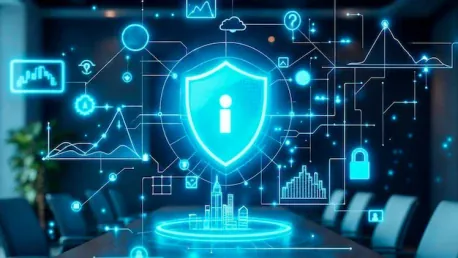The increasing integration of artificial intelligence (AI) in various sectors has prompted an urgent call for enhanced cybersecurity measures. Rachel Tobac, CEO of SocialProof Security, highlighted this pressing issue during her keynote address at the recent Legalweek conference. Tobac, a recognized ethical hacker, emphasized the critical need for organizations and individuals to adopt proactive cybersecurity strategies in light of the sophisticated threats posed by AI advancements. She underscored the importance of digital hygiene and a vigilant approach to safeguarding sensitive information, describing this state of ‘polite paranoia’ as essential to mitigate emerging cyber risks.
The Growing Interaction Between AI and Cybersecurity
The relationship between AI and cybersecurity is becoming increasingly complex. Tobac pointed out that while AI can greatly improve defensive measures, it has also reduced the entry barriers for cybercriminals. Sophisticated attacks that once required extensive technical knowledge are now more accessible, leading to a surge in cyber threats. This dual-edged nature of AI calls for a well-rounded understanding and application of technological advancements to fortify defenses. By leveraging AI tools for cybersecurity, organizations can potentially predict and counteract threats in real time, creating a more resilient security posture.
Tobac further stressed the need for continuous education on digital hygiene practices. As AI tools evolve, so too do the methods employed by cybercriminals, necessitating ongoing updates and adaptability in security protocols. This dynamic environment demands that cybersecurity professionals stay ahead of the curve, constantly refining their strategies and tools. Tobac’s insistence on a proactive stance highlights the importance of preparedness and adaptability in navigating the evolving landscape of AI-driven threats.
The Necessity of Comprehensive Education
Beyond technological defenses, Tobac emphasized the significance of comprehensive cybersecurity education. She argued that building a culture of awareness and vigilance within organizations is crucial to combating AI-driven cyber threats. This involves training employees at all levels on best practices, recognizing potential threats, and fostering a sense of shared responsibility for the organization’s security. By instilling these values, organizations can create a human firewall, reducing the likelihood of successful cyber attacks through educated and alert personnel.
Tobac’s address also touched upon the broader implications of cybersecurity in the legal field. Legal professionals are increasingly encountering cases that involve sophisticated cyber threats, as highlighted by various ongoing legal matters referenced during the conference. These include corporate risk mitigation, trademark infringement, securities lawsuits, breach-of-contract issues, and product liabilities. Each of these cases underscores the intricate nature of cybersecurity in legal contexts, demonstrating the need for robust and multifaceted approaches to protection.
Leveraging AI for Defense and Fostering a Culture of Vigilance
Despite the challenges posed by AI, Tobac highlighted the potential of these technologies to enhance cybersecurity. If leveraged correctly, AI can serve as a formidable defense mechanism, identifying and neutralizing threats more effectively than traditional methods. However, this requires a nuanced understanding of both the capabilities and limitations of AI. Organizations must be diligent in integrating AI into their security strategies, ensuring that it complements rather than replaces human expertise and vigilance.
Central to this approach is fostering a culture of vigilance and continuous learning. Tobac’s advocacy for ‘polite paranoia’ encapsulates the mindset needed to navigate the complexities of modern cybersecurity. This involves being ever watchful for potential threats, continuously updating security measures, and encouraging a proactive stance among all individuals within an organization. By promoting such a culture, organizations can strengthen their overall security posture and better prepare for the challenges posed by AI-driven cyber threats.
The Legal Implications and Future Directions
The growing incorporation of artificial intelligence (AI) across numerous sectors has sparked an urgent need for improved cybersecurity measures. Rachel Tobac, CEO of SocialProof Security, spotlighted this critical issue during her keynote speech at the recent Legalweek conference. Tobac, who is widely recognized as an ethical hacker, stressed the necessity for both organizations and individuals to implement proactive cybersecurity strategies, given the sophisticated threats that AI advancements present. She pointed out the significance of maintaining excellent digital hygiene and a vigilant stance when it comes to protecting sensitive information. Tobac termed this proactive attitude as “polite paranoia,” suggesting it is essential for mitigating the emerging cyber risks posed by AI’s rapid development. Her emphasis on these preventative measures serves as a crucial reminder of the evolving cybersecurity landscape and the proactive steps necessary to safeguard against potential threats.









